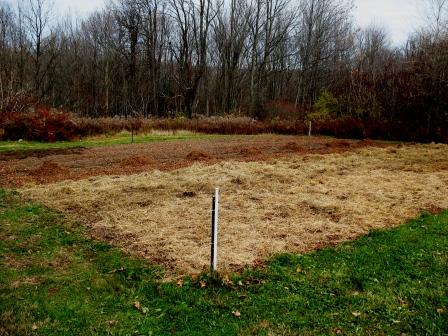




 1
1









Miles Flansburg wrote: You will only change their minds when they see that they will be able to make a living through permaculture.
"You must be the change you want to see in the world." "First they ignore you, then they laugh at you, then they fight you, then you win." --Mahatma Gandhi
"Preach the Gospel always, and if necessary, use words." --Francis of Assisi.
"Family farms work when the whole family works the farm." -- Adam Klaus

 3
3




Order copies of my book, Dairy Farming: The Beautiful Way at
www.createspace.com
Help spread the word! Thanks!
struggle - hustle - soul - desire




Miles Flansburg wrote:He proved it . http://www.onestrawrevolution.net/One_Straw_Revolution/One-Straw_Revolution.html
There is a large thread around here someplace that discussed the same question. Might take some digging to find it.
You have to remember that there are hundreds if not thousands of folks who make their living working for and with the folks who are big ag. They will not be convinced because they will loose their jobs and income if big ag goes away. I do not think you will change their minds with studies and proof. You will only change their minds when they see that they will be able to make a living through permaculture.




Adam Klaus wrote:It's been said a hundred times in as many different topics here, but 'research' means University tested. Universities are funded by the biggest corporations in the world. So 'research' focuses on the things that the corporations would like to see validated. Guess where this leaves topics like permaculture, biodynamics, etc? They only get researched to 'prove' their inferiority. Go figure. Money rules the world, and money runs our university research programs.
If you want humble, 'anecdotal' research, lots of people have done that silly stuff. Like Fukuoka, like Pfeifer, like Solomon. But that stuff won't count when you go to the university. Academia defines their own universe; and if they dont bless your data, it doesnt count.
See how this works? The doubters and the haters always can say we have no proof that our systems work. We can point to our fields and our farms, and they say it needs quantification. It goes round and round, but nothing counts as scientific knowledge without the indirect blessing of the corporate boss.

 1
1




Order copies of my book, Dairy Farming: The Beautiful Way at
www.createspace.com
Help spread the word! Thanks!
struggle - hustle - soul - desire
 2
2




A student requires no funding to go out and write their graduate thesis. So why are those being done?




"You may never know what results come of your action, but if you do nothing there will be no result”
How Permies.com Works
Be Nice
 2
2




For unlimited return on all your investments - Make your deposits at 'The Entangled Bank' !
 1
1












Dale Hodgins wrote:Someone mentioned "the stupid high cost of diesel and chemical fertilizers".
I agree with Adam, that these things are too cheap.
"You must be the change you want to see in the world." "First they ignore you, then they laugh at you, then they fight you, then you win." --Mahatma Gandhi
"Preach the Gospel always, and if necessary, use words." --Francis of Assisi.
"Family farms work when the whole family works the farm." -- Adam Klaus





|
All of life is a constant education - Eleanor Roosevelt. Tiny ad:
Learn Permaculture through a little hard work
https://wheaton-labs.com/bootcamp
|



